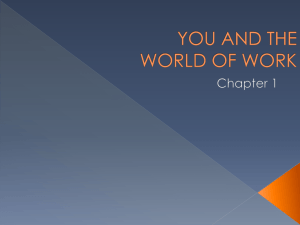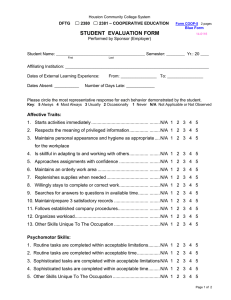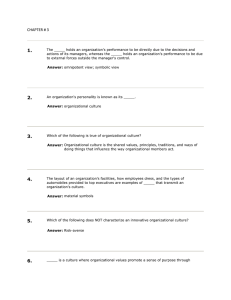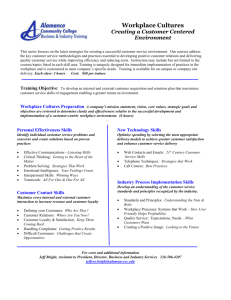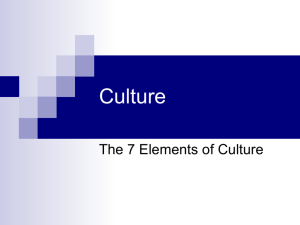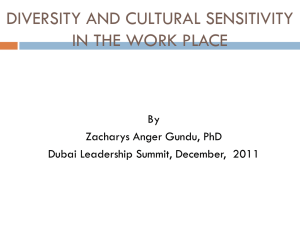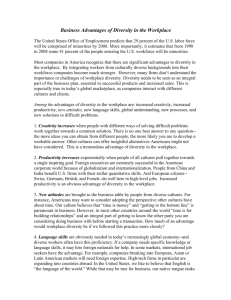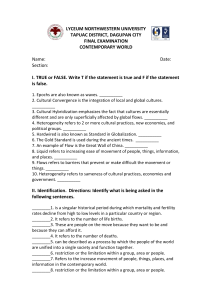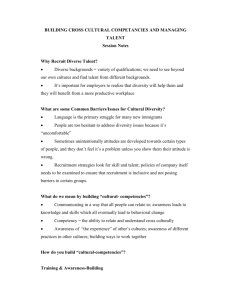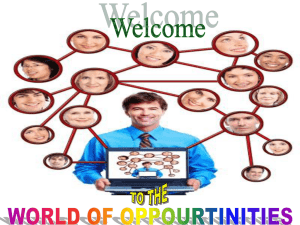Chapter 1 PowerPoint - Wilmot Union High School
advertisement
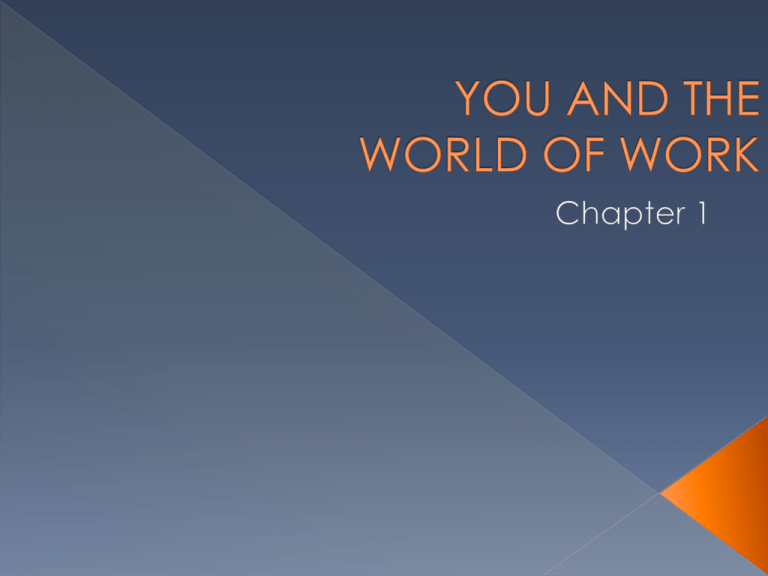
The Year is 2020… › Where do you see yourself? › What will you be doing? › What path did you go on? The concept of work means different things to different people Different people have different reasons for working or choosing the jobs that they do Work is any useful activity Full time: 2,000 hours a year Lifetime: Full time from 22 years – 70 years = 96,000 hours Interests – things you like to do Skills – things you know how to do (knowledge combined with experience) Transferable Skills – skills that you can use in many different situations It is important to examine your personality, skills, and interests as you plan your journey to your career Roberta – Page 9 Is money the end all? What makes you satisfied about work? Job – work you do for pay › Consists of certain tasks Occupation – the type of work you do › People can change jobs and still have the same occupation Career – a series of related jobs or occupations built on a foundation of interest, knowledge, training, and experience › Average American will have more than eight different jobs by the age of 32 Lifestyle is the way you use your time, energy, and resources › Many people use much of their time and energy at work Does work affect the other parts of your life? What kind of lifestyle do you want in the future? What changes are you willing to make in your current life to achieve your future goals? To Pay for Wants and Needs › Page 11 – Figure 1.1 To Be Around Others To Make a Contribution Self-Fulfillment Activity The workplace is constantly changing What work will be available? Keep on top of the changes in work Follow current events in the newspapers, magazines, tv, radio and websites to keep in the know about trends The 21st Century Workplace – page 14 Look at the tag on your clothes, backpack, shoes, etc. Where are they made? We you buy goods and services from other countries, you are participating in the global economy Economy – refers to the ways in which a group produces, distributes, and consumes its goods and services. Goods – items that people buy Services – activities done for others for a fee Global economy – refers to the ways in which the world’s economies are linked Does the global economy impact the job market? the demand for particular jobs? How does it affect the U.S.? Familiarize yourself with the diverse economies and cultures of the world Basic Skills – communication and math skills Thinking Skills – creative thinking, critical thinking, decision making, problem solving, seeing things in the mind’s eye, curiosity, knowing how to learn, reasoning Personal Qualities – personal responsibility, social and civic responsibility, self-direction and selfmanagement, self-esteem adaptability, integrity, and honesty Adaptable Workers Cell Phones, Internet, Video Conferencing, Surgeries, etc. Outsourcing – when businesses hire other companies or individuals to produce their services or goods Telecommute – work from home or in an office center that uses technology to perform their jobs Working in teams – organized group that has a common goal › Collaborate (work together) to set goals, make decisions, and implement actions › Share skills and ideas › Team members must do their share of the work, have good communication skills, and a positive attitude. Diversity – from different countries, cultures, backgrounds and generations › Respect a must! Most new jobs will be in the serviceproducing industries › Medical care › Travel accommodations › Education www.dwd.state.wi.us Look at the whole picture – skills, interests and job outlook Lifelong Learning – continue to learn about technology, new practices & new ideas
